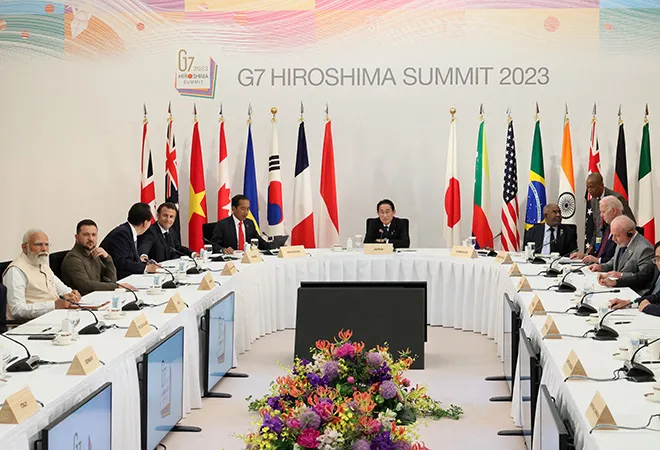-
CENTRES
Progammes & Centres
Location
Limited liability partnerships among nations will constitute the geometry of politics. This is a gritty, realist world. We may not like it, but it’s here to stay

Social media, trends in technology and politics, and a host of other factors have bracketed us into narrow spheres of interest.
Nations are driven by self-interest and in this case, the need to maintain lucrative economic relations.Indeed, when the pandemic struck, there was no superpower, there was no great power, and there was no big power. There were only selfish powers. Similarly, the Afghan people were betrayed and abandoned because it was expedient for higher powers to flee the country at a particular moment. And Chinese territorial incursions have provoked a range of self-serving responses from different actors otherwise keen to defend democracy. Put bluntly, there is no moral high ground. All that remains is the ruthless pursuit of national self-interest. Two actors epitomised this approach in the 1960s and 1970s, one actor in the 1980s and 1990s, and several new voices have joined the fray in this century. If meaningful international dialogue is to be conducted, nations must right-size some of their perceptions about each other and themselves. In this context, the tendency to frame the Global South as a possible bridge actor between competing positions has its merits. But the “Global South” is itself a deeply reductive term, which elides the group’s innate heterogeneity. Very few countries would like to be categorised as “southern” as they continue to rise and shape global systems. Five years from now, Brazil and India might bristle at such a label themselves. The neatly packaged idea of the Global South fails to recognise that there will soon be far more decisive swings within the group than outside it. How the countries of the South organise themselves over the next decade will have a far more profound impact than the West on the global balance of power, and on the contours of the new world order. As this century progresses, an East and West will emerge within the Global North and South.
LLPs will come to constitute the geometry of politics, and countries will work together on specific issues, for specific purposes, and for specific outcomes.Concomitantly, international engagements of the future will organise themselves around the standard operating principle of law firms — as limited liability partnerships (LLPs). LLPs will come to constitute the geometry of politics, and countries will work together on specific issues, for specific purposes, and for specific outcomes. With the transition to the new LLP ethos of geopolitics, we will not be burdened by the need to focus on anything other than the narrowly defined collaborative interest at hand, and can build relationships that are more strategic, if also more transactional. This is a gritty, realist world. We may not like it, but it’s here — and here to stay.
The views expressed above belong to the author(s). ORF research and analyses now available on Telegram! Click here to access our curated content — blogs, longforms and interviews.

Samir Saran is the President of the Observer Research Foundation (ORF), India’s premier think tank, headquartered in New Delhi with affiliates in North America and ...
Read More +